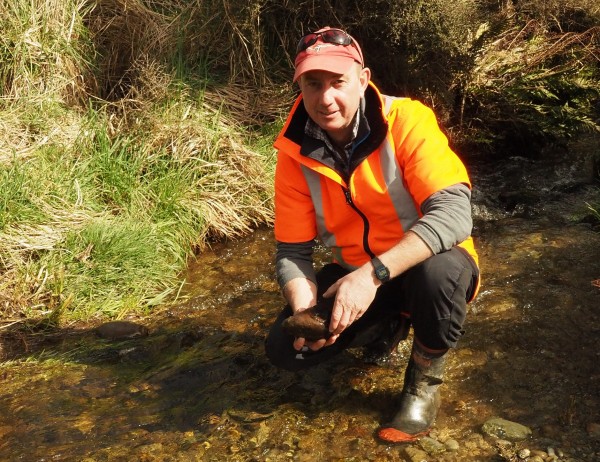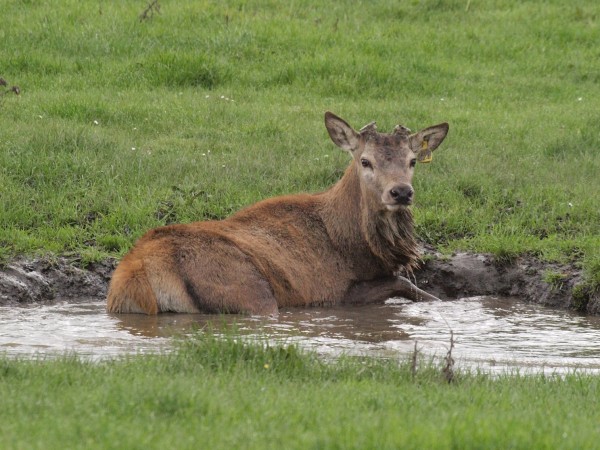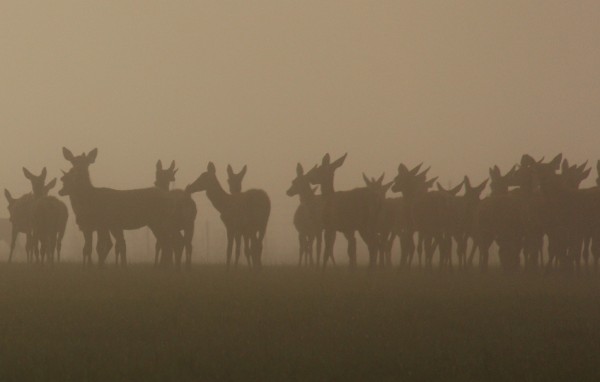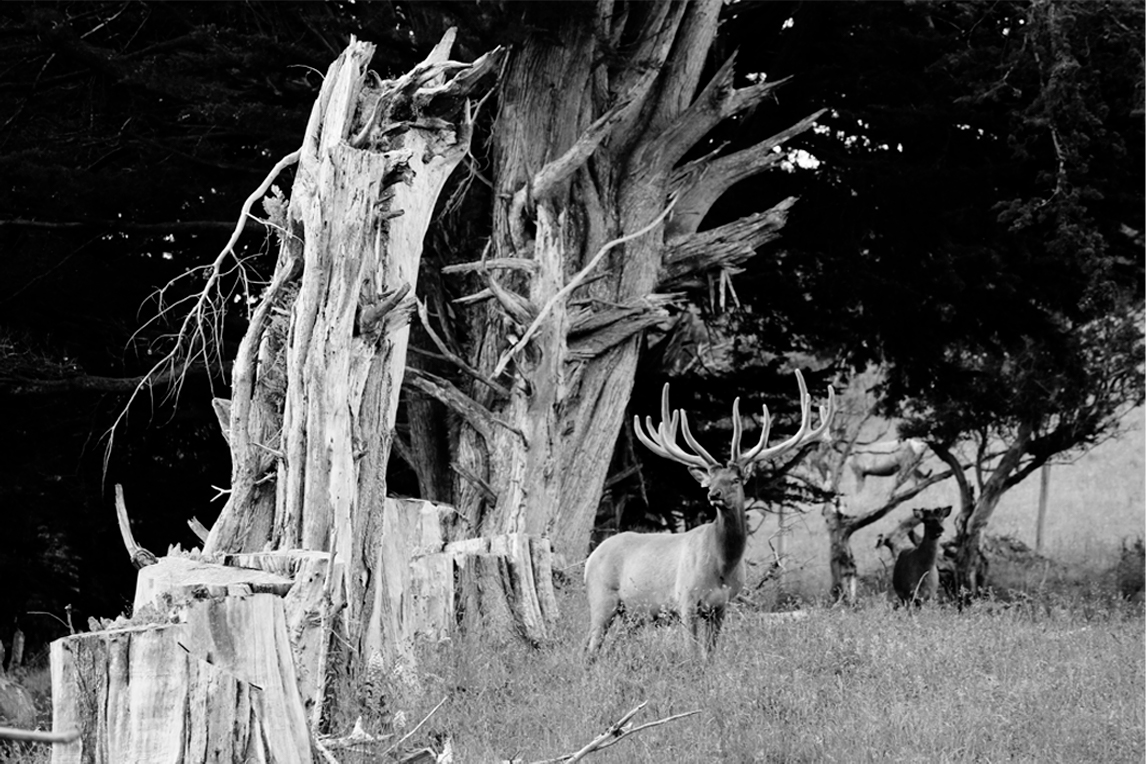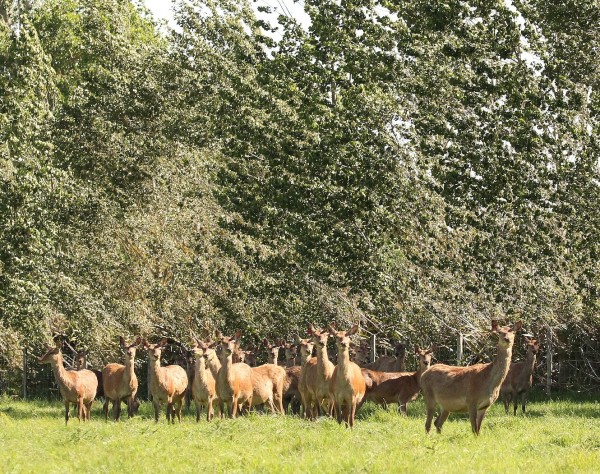
Deer farming in New Zealand has a very low environmental footprint, on a per-hectare basis, compared with other food producing industries around the world.
Hinds shelter from strong winds on a Hawkes Bay deer farm. Deer respond well to natural shelter
- Many deer are farmed on hill country or in areas unsuitable for food cropping.
- Deer are fed on pasture, either grazed in the paddock, or conserved and fed in periods of low pasture growth as hay or silage. Grain is fed in only small amounts to maintain health and growth in periods of feed shortage.
- Deer pastures include clovers that ‘fix’ nitrogen from the atmosphere. Very little artificial nitrogen fertiliser is used.
- Most deer pastures are ‘permanent’. Cultivation, which releases potent greenhouse gases – nitrous oxide and carbon dioxide – into the atmosphere, is minimised. Where cultivation is needed minimum tillage is widely practised.
- The urination behaviour of deer, unlike cattle, is understood to not result in urine leaching to groundwater.
- The main environmental risks posed by deer – loss of soil into streams and the impact of browsing on native vegetation – is being effectively managed on most deer farms.
- Deer farmers have been leaders in sustainable farming practices since 2001, when the Elworthy Environmental Award for sustainable deer farming was initiated.
However, the threat posed by climate change, including the greenhouse gas (GHG) emissions from agriculture, is of increasing global concern.
In response to this threat – as well as public concerns about water quality and loss of biodiversity – New Zealand is going through a period of major environmental reform. All industries are expected to minimise their impact on the environment. Deer farming is no exception.
More resources
There are rich information resources about sustainable deer farming practices on the Deer Hub section of this website. Click here >>
Deer Industry NZ organises groups where farmers can learn how to calculate their GHG emissions and to prepare Farm Environment Plans. Farmers seeking information on groups operating in their district should contact: Megan McCall. Tel 03 477 6375; 027 207 6074; mmccall@abacusbio.co.nz

